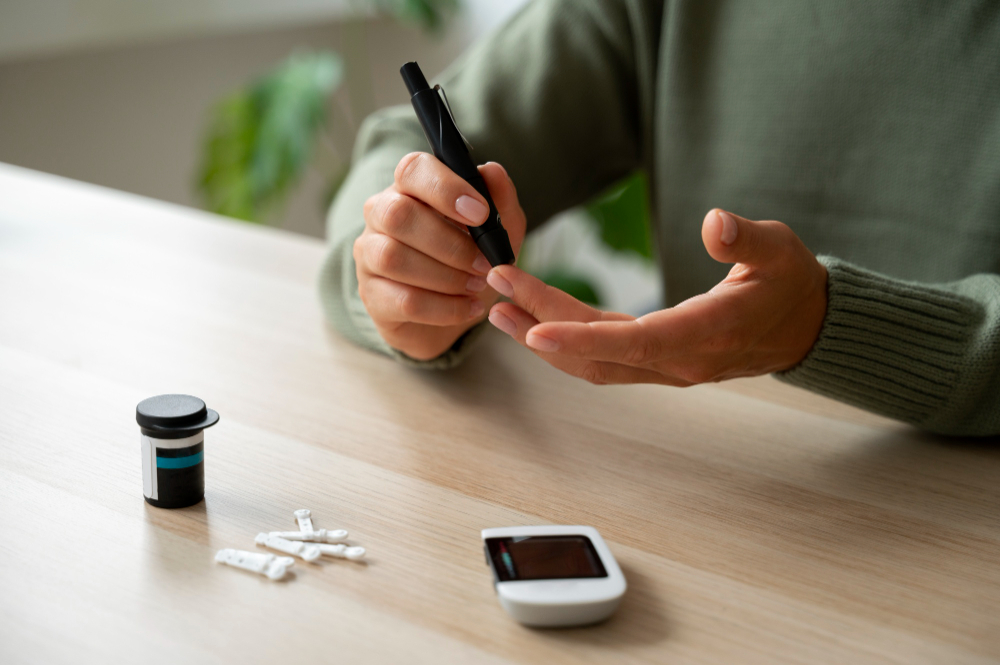
Managing type 2 diabetes can feel like navigating an intricate maze. With an array of medical advice, lifestyle changes, and emotional challenges, finding the path to optimal health can be complex. This blog post will guide you through a holistic approach to treating type 2 diabetes, ensuring that you have the knowledge and tools to take control of your health.
Before we begin discussing treatment options, it's important to gain a solid understanding of type 2 diabetes. Unlike type 1 diabetes, which is caused by the immune system attacking the insulin-producing cells in the pancreas, type 2 diabetes often develops as a result of insulin resistance. This resistance means that the body's cells cannot respond to insulin effectively, leading to high blood sugar levels – a condition known as hyperglycemia.
Hyperglycemia can cause a range of symptoms, from increased thirst and urination to unexplained weight loss and fatigue. Long-term, uncontrolled hyperglycemia can lead to serious health complications, including heart diseases, nerve damage, and kidney problems.
The treatment of type 2 diabetes often involves a multifaceted approach that encompasses several key areas:
Medications are commonly prescribed to lower blood sugar levels. These can include oral medications, insulin injections, or other injectable medications like GLP-1 receptor agonists that stimulate the release of insulin. Your doctor will tailor a medication plan that works best for you based on your health, insurance coverage, and personal preferences.
Dietary choices play a significant role in managing blood sugar levels. A diabetes-friendly diet focuses on controlling portion sizes, choosing nutrient-dense foods, and monitoring carbohydrate intake. Engaging with a certified diabetes educator (CDE) or a registered dietitian can provide invaluable guidance on meal planning and developing a healthy eating pattern.
Exercise prompts your body's cells to use sugar for energy, helping to deplete excess glucose from your bloodstream. Regular physical activity is vital for managing type 2 diabetes as it can improve insulin sensitivity, lower blood sugar, and reduce the risk of cardiovascular diseases. You should aim for at least 150 minutes of moderate-intensity exercise per week, but remember to consult with your healthcare provider before starting any new exercise program.
Frequent blood sugar monitoring is a crucial part of diabetes management. By tracking your blood sugar levels, you can identify patterns and make timely adjustments to your treatment plan. Self-monitoring also helps you to understand how food, physical activity, and stress impact your blood sugar levels.
In addition to these primary treatment pillars, holistic health practices can complement your diabetes management strategy. These practices focus on treating the whole person, not just the symptoms of diabetes, and may include:
Chronic stress can increase blood sugar levels through the release of stress hormones. Practicing relaxation techniques such as deep breathing exercises, meditation, or yoga, can help to lessen this impact and improve your diabetes control.
Sleep is crucial for overall health, and poor sleep can disrupt hormone levels and lead to higher blood sugar levels. Aim for 7-9 hours of quality sleep each night and establish a relaxing pre-sleep routine to promote good sleep hygiene.
Living with a chronic disease can be emotionally challenging. Support groups, therapy, and engaging in activities that bring you joy can improve your emotional well-being. It's important to address any feelings of depression or anxiety as these can impact your ability to manage your diabetes effectively.
Some people find relief from certain diabetes symptoms by exploring complementary therapies such as acupuncture or massage. While these practices may not treat diabetes directly, they can contribute to an overall sense of well-being.
Lifestyle modifications are not about making temporary fixes but about instituting lasting changes that support health. Here are some changes you can start implementing today:
In the modern world, portion sizes have ballooned, and it’s important for individuals with diabetes to manage how much they eat. Learning about appropriate portion sizes and using smaller plates can help control overeating.
Whole foods, such as fruits, vegetables, and whole grains, are rich in nutrients and fibrous carbohydrates, which can help regulate blood sugar levels better than their processed counterparts.
Regular physical activity can make cells more sensitive to insulin, which can lower blood sugar. Although starting an exercise regimen can be daunting, small changes like taking the stairs instead of the elevator or going for a brisk walk after meals can have a positive impact.
Living with type 2 diabetes means adopting a new way of life, one that prioritizes health and wellness in a holistic manner. By integrating traditional medical care with complementary therapies and lifestyle changes, you can find a comprehensive approach to managing your diabetes that works for you.
Seeking care from a reputable primary care clinic in Philadelphia, PA, such as Vital Urgent Care, can provide you with the support and resources you need to develop a personalized diabetes management plan. Don't hesitate to take the first step towards a healthier life – your actions today can lead to a better tomorrow.
If you're seeking a primary care clinic in Philadelphia, PA, contact Vital Urgent Care today to request an appointment and begin your journey towards diabetes control and long-term health.